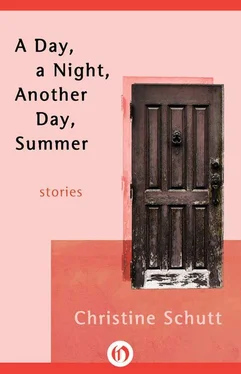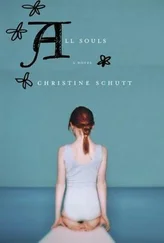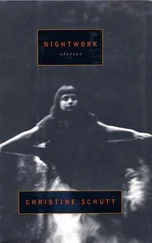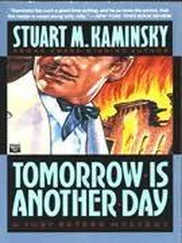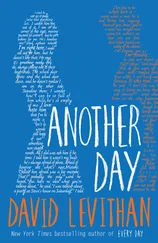Ned said, “I don’t know. I don’t know the answers to all your questions.”
Ned said, “Why should I?” when the question of curfews came up. “Jack didn’t.”
Sometimes Ned got angry and his hand, long still against her back, withdrew, and he went to his room and turned up his music. The telephone rang; he slammed the door or he talked to Jean in the way his brother did, absently: the flat-voiced “Yes,” the “What?” that was nasty. The nimble imitative skill Ned showed was common. Jack did it and others of his friends and Ned's friends, she had heard them speaking to their parents in their parents’ voices. They groaned new words that meant dumb and ugly. She said, “Talk to me in your own voice, Ned, talk to me so I can understand.”
Sometimes Ned did speak earnestly, and when he spoke to her in this voice, she wanted to take him by surprise, to touch him, to kiss his mouth as it moved — and would go on moving, saying, “Mother! Don’t!”
Sometimes Ned said, “Will you not, please,” but she went on. She wormed her fingers between his toes; she tickled him or worked Q-tips, painfully, around the curled folds of his ears. “Damn it, Mother, that hurts!” Yet he was the one who asked her to do it. “Cut my nails,” Ned said, and she cut too close.
She said and she said and she heard herself saying — whining, really—“Please, you are the only one who knows how to scratch.”
Hadn’t she heard? Jack asked; but, no, the sound of a body thrown against a wall was not a sound she had ever heard. The sound of a hand raised against another body, yes, that was familiar to her, and objects ripped, broken, smashed, whipped, snapped, yes; wails against a scurrilous tirade she had heard many times before, and the blast of her own voice was familiar. Think of all that noise! So what did Jack know compared to her?
“Plenty,” Jack said, and he read from his home contract delirious stories. What he had done and what in the future, once home again, he would contract not to do: no more drugs with lyrical names; those suggestive tabs of magic, he vowed he would not take — no, not again, never again. He didn’t need to be high. He was going to think.
Meetings, yes, he agreed to go to them, to find them.
Strategies for avoiding users: avoid users.
Curfew.
Curfew was always an issue.
Every weekend Jean repeated, “Write it down! No later than one o’clock!” when Jack, of course — of course, extreme! — said, he said, “The home contract has to do with trust. No.”
Then she thought of Jack as he appeared in his home contract stories, the ones he wrote so freely, attaching pages to the contract, pulling from his pocket more stories penciled on folded notes with linty seams and so worn in their appearance that she wondered: Had Jack started these stories before the facility? Was he writing these scary stories while they were happening at home to Jack, the school actor — always dramatic?
The starless urban nights he described, kiosks on corners, the shuddering homeless, Jack and his buddies, whoever at the time, even he didn’t always remember which friends but that there were several, and they walked the city. They stood in the sheeted stalls on busy streets — all-night markets in awful light; but the surly cashiers sold them anything: imported beers and cigarettes, for which they pooled their money. Jack had stolen from his mother to buy what he snorted in bathroom stalls. He stole so largely he was caught.
“Look at the pages I’ve got!” he said and thumbed the home contract.
Home, in a tub she kept hot, she sweat out the smell of the scrub used at the facility; she soaped; she flexed her toes and admired the polish she still put on, insisting she would yet be playful, as once she had been playful, surely, and perverse and curious and young. On her knees, in a bathroom, she hung over the tub and watched, as he did, a small rising.
Oh, they had their casual routine. Jean and Ned, the two of them, she thought, living well together and easily, passing even shyly in the hall, sliding against the wall to keep from touching. Observant, quiet, gently agreeing or asking on the way out, “Do you want anything?” This was the way they were together, alone, Jack at the facility and the husband years missing.
Tub-pink and powdered, holding out the lotion, asking, “Will you do my back now, please?” Often asking, “Please, my back?”
“Please, stay home,” she called out, but Ned did less and less. And less and less he called, or when he did his voice was muzzy, or else he sounded angry and baffled. “What’s the number where you are?” Jean asked and heard him speak to someone near, “Whose house is this? Where are we?”
Oh! To have those summers back and time on the rental’s beach, a weathered house where sand collected on the windowsills and grass blades thatched the mudroom. Country on a small green scale was what she told her sister that she missed. Jean missed the sloppy blossoms that were roses, beach roses, casual pink daubs against the fence and sugared sand. Blown before picked, the beach roses, perfuming the air as a girl would, largely indiscriminate, the beach roses Jean missed and the smell of them and the colors of this country, which was not the country she drove through on her way to the facility. No, that country — why talk of it?
Jack only talked about the city, about his enemies and friends. Cale, Urbinger, Schwartz were guys out to get him when Jack got back, which was one of the reasons he feared going back and joked of never leaving the facility. Fucking Urbinger claimed Jack had stolen his watch and that he, Jack, owed him.
“Jack,” Jean said.
“What?” Jack asked. “What is it?”
The tabs he let melt on his tongue were easy to come by in the parks where he dangled in the stories he was telling — dopey sleeper — waking to the skaters’ whir, the poor’s hobbled passing. Gnawed-at gnawing rats, bald and balding, tamed up his leg snooting food — that’s how still Jack was, watching: island drummers, bobbers in exploded shoes, the man in his python, parading his snake. Venomous keepers, women padlocked — threaded lips, encrusted ears — the faces Jack saw had the caught look offish. Fishy, guilty, up to no good, they were passing out cards to any hand that would take one, and he did, didn’t he? “So much in the city is easy to come by,” Jack said, which was what he was about. The story was his; some of it was attached to the home contract. “The Z-B Club,” Jack said, “is real. It happens near the park every night.”
The friends Jack described jingled in Jean’s ears when she listened to Jack’s story. The braid beads on girls, the strung shells, buttons, bells they wore around their necks, several at a time — yoked, choked — the sounds they made, the chafe of jeans when they walked, the chafe of candy-colored lighters: sweet cannabis smoke! The club lights expose the air confettied with drugs, with curlicues of edible, mind-bending paper. That stupid Cale got sick — and almost died — but he was rushed to Lenox Hill. “Where I live,” Jack said, “is dangerous. That’s why I need the home contract. I need some rules to live by.”
Jean came home from the facility and soaked in hot water until she was warm again and asked Ned to please put some lotion on her back. “I don’t care if it is cold,” she said. She wore her bathrobe as a stole, shrugging to where she wanted it. “There,” Jean said, “and there.”
In the gourd-green and — yellow of October, on sullen afternoons, Jean watched Jack carve JACK along the rim of the mutilated table in the dining hall. He was putting his own name everywhere, chipping at it while he lured his mute friends with smut. Boys with home-done haircuts and scars, they touched themselves lightly and laughed. She had walked toward this same scene before and seen them and seen Jack, slunk in his stories — then, then, then — gouging the table with a fork.
Читать дальше
